Latest Release! Dr. Aloysius Wong’s Team Publishes an Article in Nature Plants
Recently, Professor Aloysius Wong and colleagues from the College of Science, Mathematics and Technology, published two articles at authoritative journals with impact factor 18 and 27.5, respectively. Here, he briefly describes the content of these articles.
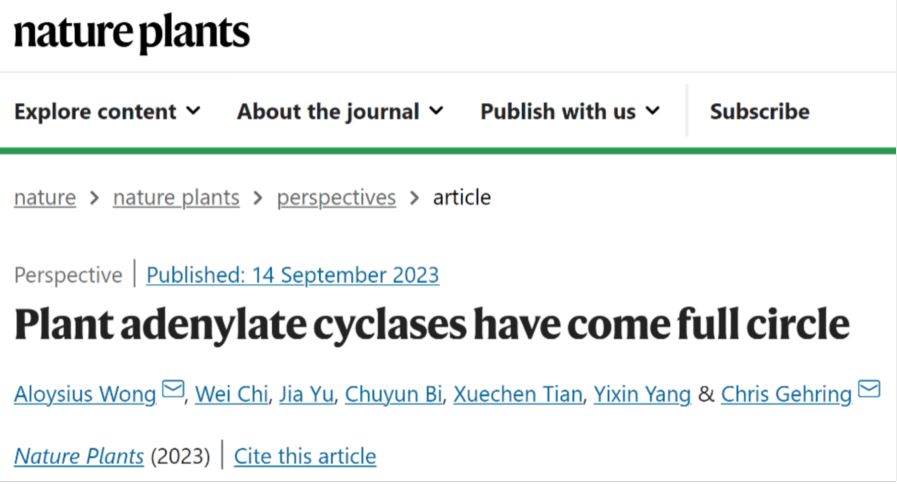
Many essential functions of our body are regulated by hormones. For instance, when we are confronted by a snake, our “fight-or-flight” response is activated through epinephrine (also known as adrenaline) which is a hormone that mobilizes glucose in the blood and causing the heart to beat faster. As a result, we can react quickly to dangerous situations.
However, many hormones cannot pass through the cell membrane. So, how does the binding of a hormone to the plasma membrane change the activity of enzymes in the cell?
In the mid-1950s, Earl Sutherland and his colleagues noticed that a chemical substance is released by the membranes of liver when incubated with epinephrine. This substance was later identified as cyclic adenosine monophosphate (cAMP). It activates enzymes within the cell such as glycogen phosphorylase causing a release of glucose in the blood. This discovery earned him the Nobel Prize in Physiology in 1971.
Today, we know that cAMP is involved in many biochemical processes, including the regulation of glycogen, sugar, and lipid metabolism. cAMP is known as a “second messenger” because it relays the signals from hormones, which are the “first messengers” at the surface of the cell, to enzymes and other proteins in the cell.

cAMP exists in organisms across the tree of life and is produced by an enzyme known as adenylate cyclase (AC). In plants, cAMP is involved in ion uptake and homeostasis, and regulates cell division and proliferation, pollen tube growth and reorientation, stomatal opening, and energy metabolism, but the enzyme that produces it, the AC, was undiscovered. This is surprising because ACs have been found in almost all species and they are highly conserved.
“If cAMP plays such important role in plants, then where is the enzyme that generates it?”, asked Dr. Wong. The convenient answer to this question would be that ACs are just not present in plants, but Dr. Wong argues otherwise. Just because they are unfound, doesn’t mean that they don’t exist. Dr. Wong believes that plant ACs are just different from those in animals, bacteria, and fungi, thus can not be identified through regular homology approaches. Dr. Wong predicts that the ACs in plants could have undergone extensive divergent evolution, retaining only the key amino acids at the catalytic site. Moreover, to be more efficient, plant ACs may have been integrated into much larger proteins with other primary functions such as ion transport and hormone perception. As such, plant ACs are thought to have a “moonlighting” function where they tune the activities of other domains within and between proteins, thus offering a way to dynamically adjust the signal strength e.g., cAMP, at specific regions of the cell (spatiotemporal regulation). This kind of micro-regulation ability is even more crucial for sessile organisms such as plants, as they need to continuously respond and adapt to environmental conditions whereas mobile organisms such as animals could just physically move.

Dr. Wong and his colleagues have spent more than 10 years developing innovative methods to discover plant ACs. They have successfully discovered many new ACs and importantly, their methods have been recently applied by several research groups around the world as exemplified in a recent publication in Nature, by Jiri Friml’s group in Austria, who somewhat unexpectedly, identified an AC that is moonlighting within the well-characterized TIR1/AFB auxin receptors [1]. This AC mediates auxin dependent root growth and gravitropic response. In China, researchers at the State Key Laboratory of Wheat & Maize Crop Science, Henan Agricultural University, and the Research Center of Chinese Jujube, Hebei Agricultural University, have recently applied our method and successfully found ACs in crops and economically important plants such as maize, jujube, apple and pear, where the ACs were shown to be involved in fundamental plant growth and development such as seed germination, root growth, flowering and circadian rhythm, as well as plant responses to environmental stresses such as heat and pathogens [2,3].
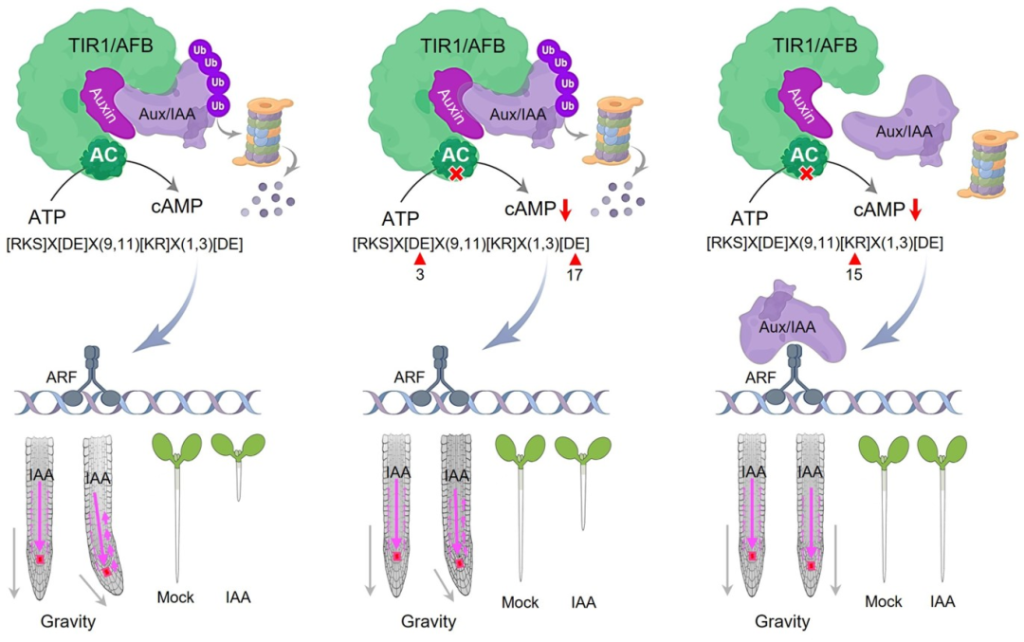
Dr. Wong’s team at WKU detailed the significance of this finding in Molecular Plant [IF: 27.5] in 2022 [4], and in September this year, his team provided further analysis and update in Nature Plants [IF: 18] which will guide the direction of research in this field [5]. Dr. Wong explained that the auxin pathway has been unchanged for almost 15 years and the same is true for many classical plant hormones. Without the complete understanding of the signaling pathways in plant cells, scientists can not design effective strategies for crop improvements. Therefore, the contribution of Dr. Wong’s team was crucial to enable such high impact discoveries which will not only change the way we understand about plant growth and responses, but also generate new targets for biotechnological innovations that will increase crop yield and tolerance to environmental stresses, thus contributing to food security and sustainable food production.
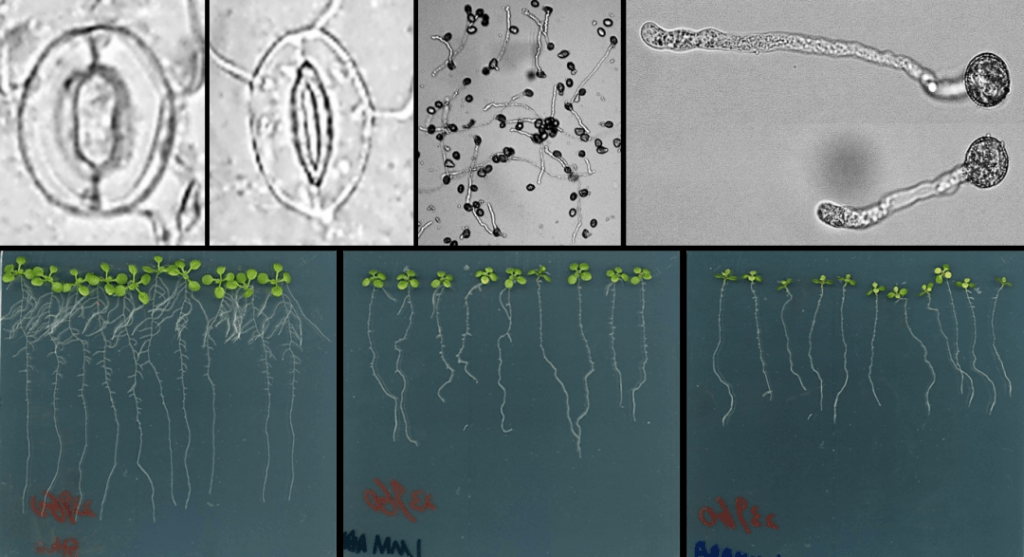
Although both publications were led by Dr. Wong, WKU graduate students Chi Wei and Yu Jia, his research assistant Chuyun Bi as well as Xuechen Tian who is currently completing his doctorate at University of Malaya, and WKU Vice Chancellor of Academic Affairs Dr. Yang Yixin, have contributed significantly to the articles. They diligently collected data, performed data analysis, and generated the figures and tables, for the articles.
Dr. Wong’s lab at WKU is currently characterizing novel moonlighting proteins several of which affect stomata closing, root architecture and pollen tube growth, while also delineating their molecular regulations and cellular pathways. He invites highly motivated students who are passionate about making exciting discoveries and with interest in plant biology, to contact him to explore research opportunities in his group.
Writer: Dr. Aloysius Wong’s Team, WANG Zhiyao
- Wenzhou-Kean University Spearheading Sustainability in Higher Education in Asia and in China, Awarded the AASHE STARS Gold-Certified in Sustainability
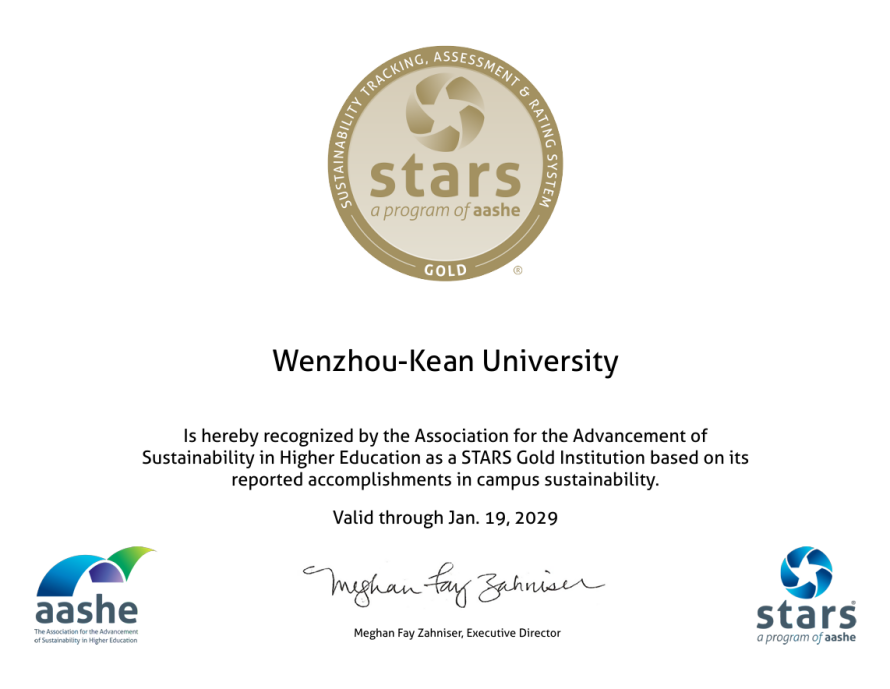
- Media Report | Wenzhou Daily: A Window into Friendship Between Chinese and U.S. Youths Wenzhou-Kean University Welcomes 340 Young Americans in Two Years
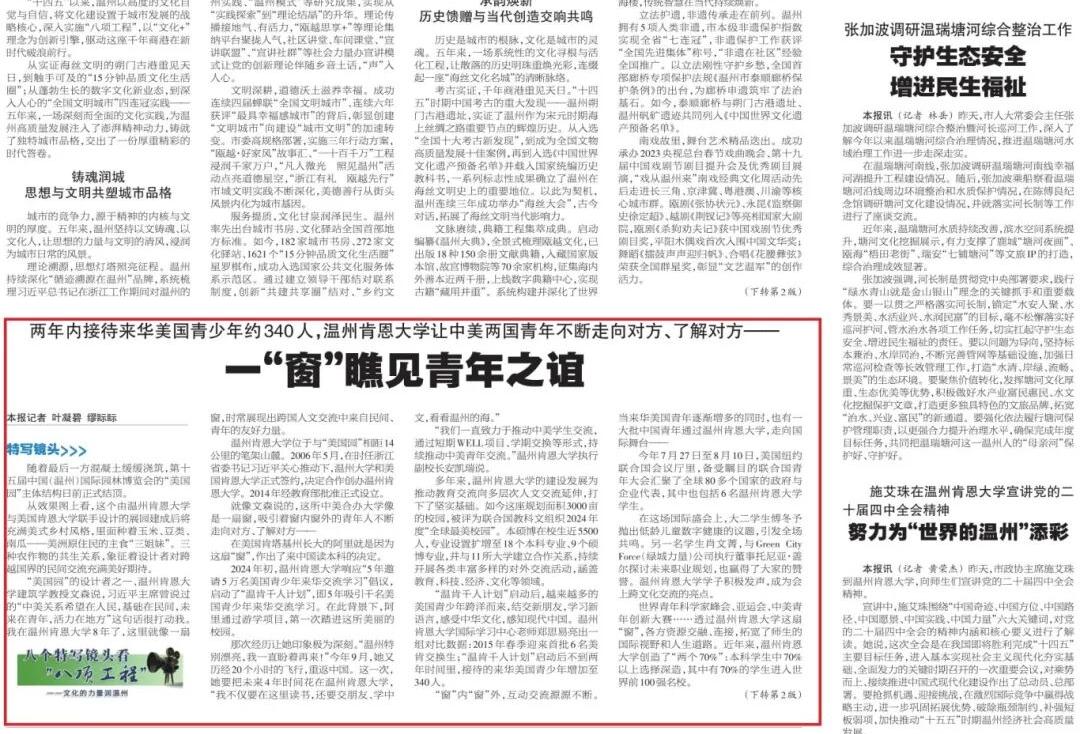
- WKU Student wins first prize in a national English speech contest: What is his answer to the value of boredom?


